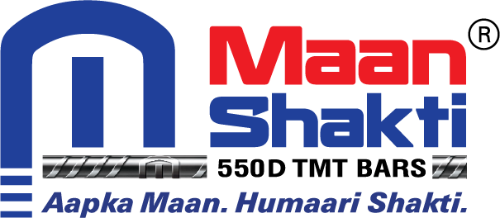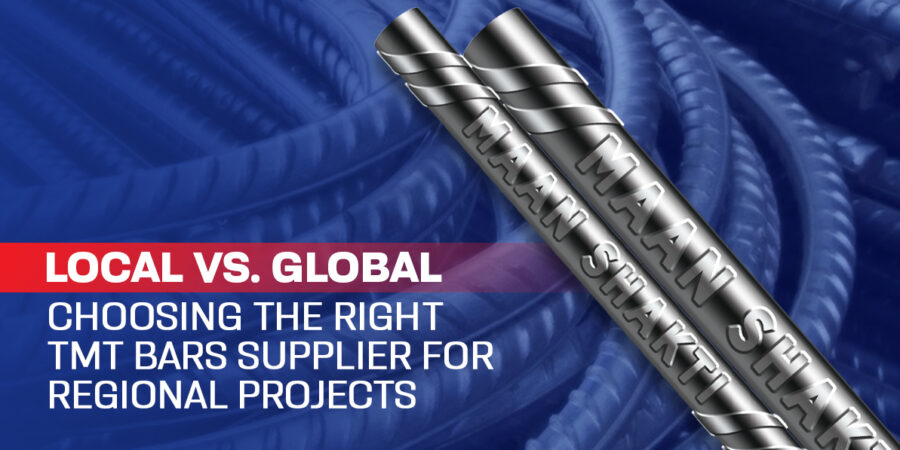Selecting the right supplier for Thermo-Mechanically Treated (TMT) bars is a pivotal decision in the world of construction, especially when it comes to regional projects. The choice between local and global TMT bars suppliers holds immense significance, influencing the overall success of a construction endeavor. Local suppliers, rooted in the region, bring a nuanced understanding of local regulations, cultural dynamics, and specific construction needs.On the other hand, global suppliers offer a vast array of options but may grapple with logistical complexities and cultural differences.
In this exploration, we’ll navigate the factors builders and contractors must consider when making this crucial decision. From the advantages of proximity and regional expertise to global logistics challenges, we’ll delve into the intricacies of choosing a TMT bars supplier tailored to the unique demands of regional projects.
Proximity and Logistics
Choosing a local supplier of TMT bars offers practical advantages, especially when it comes to proximity and logistics. The closeness of a local supplier translates into more than just geographical convenience—it means faster deliveries and reduced lead times for builders and contractors. Proximity becomes a key asset, minimizing transportation distances and, consequently, lowering associated costs. Faster deliveries enable construction projects to stay on track, meeting tight schedules without unnecessary delays.
Local suppliers can respond promptly to urgent demands and ensure a steady supply of TMT bars, contributing to the overall efficiency of the construction process.
Logistical Challenges of Global Suppliers
Global TMT bars suppliers, while offering a broad spectrum of choices, come with their own set of logistical challenges. One notable concern is the potential for delays stemming from the complex logistics of long-distance transportation. Shipping TMT bars across borders involve navigating various channels, potentially leading to extended lead times that can disrupt construction schedules.
Moreover, the environmental impact of extensive transportation cannot be overlooked. Long journeys contribute to carbon emissions, raising ecological concerns. Understanding these challenges is crucial for builders and contractors evaluating global suppliers. While the world may seem interconnected, the logistical intricacies associated with global TMT bars suppliers underline the need for a careful balance between choice and the practicalities of timely and eco-conscious supply chain management.
Quality Control and Assurance
Quality control is paramount in the construction industry, ensuring the durability and safety of structures. Local TMT bars suppliers hold a distinct advantage. Their proximity allows for meticulous monitoring and hands-on supervision throughout the production process. Local suppliers can implement stringent quality control measures, examine raw materials, conduct in-process inspections, and perform final checks. This hands-on approach minimizes the risk of defects and ensures that the TMT bars meet regional construction standards.
Moreover, local suppliers are more attuned to the specific requirements and regulations of the region, enhancing their ability to maintain consistently high quality. For builders and contractors engaged in regional projects, aligning with a local supplier translates into a reliable source of TMT bars with the assurance of stringent quality control.
Strategies for Decision-Making
Builders and contractors can make informed decisions that align with the unique demands of their construction projects by addressing the below-mentioned considerations. So, let’s decide strategically whether opting for a local or global supplier of TMT bars is right for you.
Project Analysis
Begin by thoroughly understanding the specific requirements and nuances of your construction project. Consider factors such as project size, timeline, and regulatory standards.
Define Your Priorities
Clearly outline your priorities in supplier selection. Is proximity and quick delivery crucial, or are you looking for a broader range of TMT bar options? Define what matters most for your project.
Local Expertise Assessment
Evaluate the advantages of local suppliers, considering their familiarity with regional regulations, construction standards, and the ability to navigate local logistics efficiently.
Global Supplier Considerations
For global suppliers, assess their track record in navigating international logistics, reliability in meeting delivery timelines, and their understanding of global construction standards.
Quality Assurance Protocols
Investigates the quality control measures implemented by each supplier. This includes examining their raw material sourcing, production processes, and adherence to industry quality standards.
Cost Analysis
Conduct a detailed cost analysis, factoring in not only the upfront costs of TMT bars but also transportation expenses, potential import/export duties, and any volume discounts offered by the suppliers.
Customer Feedback and Reviews
Gather insights from customer reviews and testimonials. Learning from the experiences of others who have worked with the suppliers can provide valuable perspectives on reliability and service quality.
Flexibility and Customization
Assess the flexibility of each supplier in accommodating project-specific needs and customization requests. A supplier willing to tailor their offerings to your project requirements adds significant value.
Wrapping Up
Builders and contractors embarking on regional projects should thoughtfully weigh the advantages and considerations when choosing between local and global TMT bars suppliers. This crucial decision shapes the success of construction endeavors, emphasizing the need for a careful and informed evaluation process tailored to project-specific requirements.


